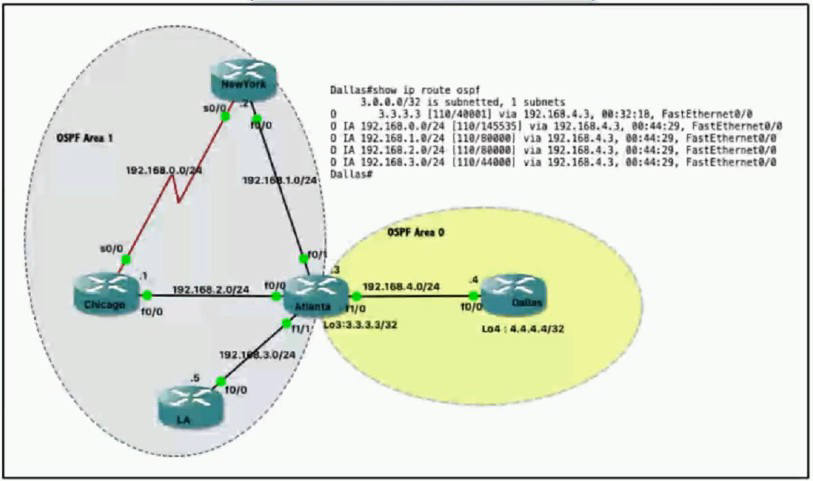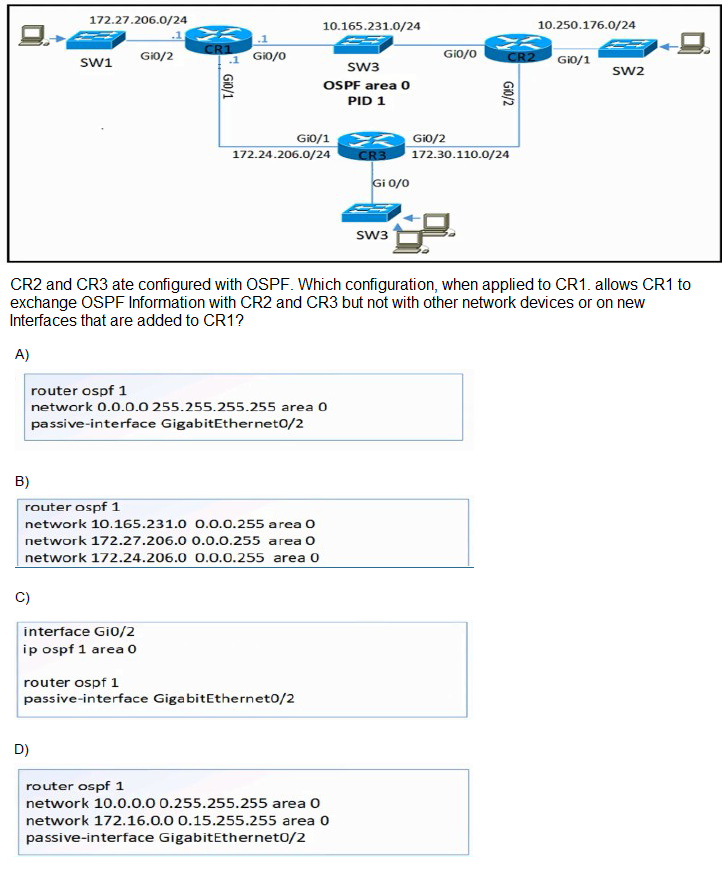
- Email support@dumps4free.com

Topic 2: Exam Pool B
Refer to the exhibit.

Which command when applied to the Atlanta router reduces type 3 LSA flooding into the backbone area and summarizes the inter-area routes on the Dallas router?
A.
Atlanta(config-route)#area 0 range 192.168.0.0 255.255.248.0
B.
Atlanta(config-route)#area 0 range 192.168.0.0 255.255.252.0
C.
Atlanta(config-route)#area 1 range 192.168.0.0 255.255.252.0
D.
Atlanta(config-route)#area 1 range 192.168.0.0 255.255.248.0
Atlanta(config-route)#area 1 range 192.168.0.0 255.255.252.0
Refer to the exhibit.

A.
Option A
B.
Option B
C.
Option C
D.
Option D
Option D
Which two parameters are examples of a QoS traffic descriptor? (Choose two)
A.
MPLS EXP bits
B.
bandwidth
C.
DSCP
D.
ToS
E.
packet size
MPLS EXP bits
DSCP
Which antenna type should be used for a site-to-site wireless connection?
A.
Omnidirectional
B.
dipole
C.
patch
D.
Yagi
Yagi

What is the wireless received signal strength indicator?
A.
The value given to the strength of the wireless signal received compared to the noise level
B.
The value of how strong the wireless signal Is leaving the antenna using transmit power, cable loss, and antenna gain
C.
The value of how much wireless signal is lost over a defined amount of distance
D.
The value of how strong a tireless signal is receded, measured in dBm
The value of how strong a tireless signal is receded, measured in dBm
Explanation:
RSSI, or “Received Signal Strength Indicator,” is a measurement of how well your device can hear a signal from an access point or router. It’s a value that is useful for determining if you have enough signal to get a good wireless connection. This value is measured in decibels (dBm) from 0 (zero) to -120 (minus 120). The closer to 0 (zero) the stronger the signal is which means it’s better, typically voice networks require a - 65db or better signal level while a data network needs -80db or better.
| Page 44 out of 168 Pages |
| Previous |